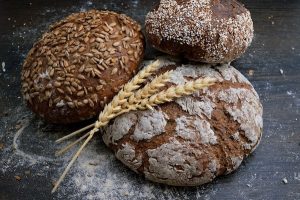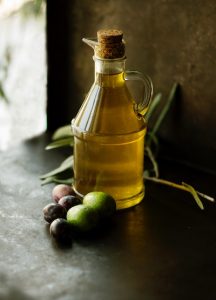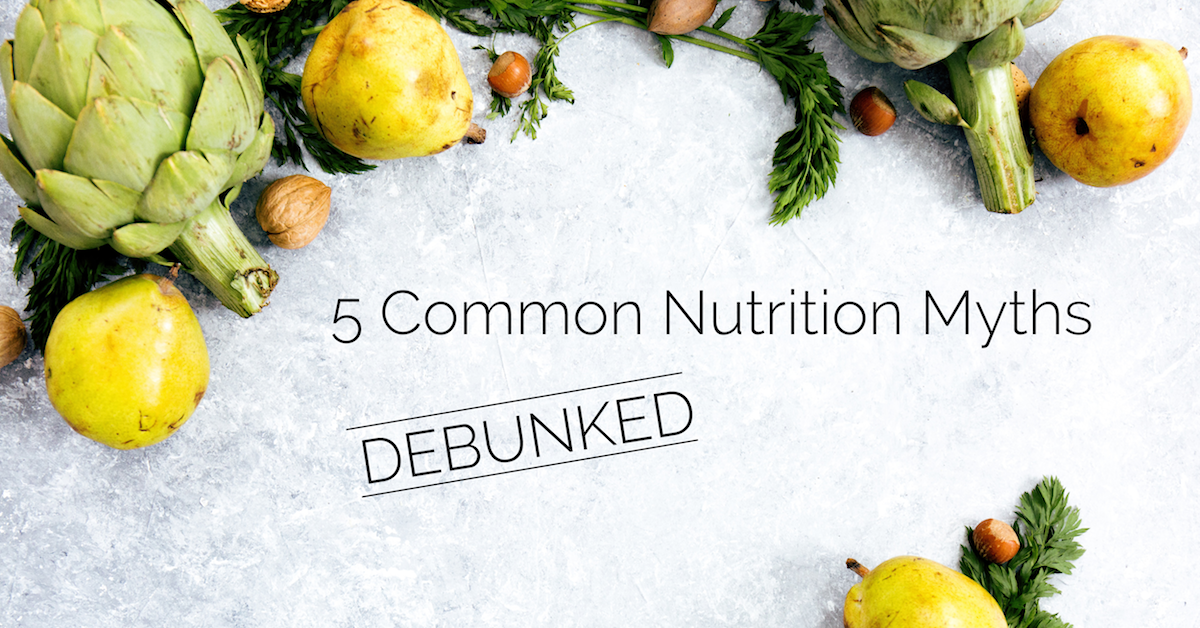5 common nutrition myths: debunked by our dietitian
It seems as though nutrition advice is always changing. One minute we see an article bragging about the latest diet or superfood, and the next minute there’s a TV program or Instagram post telling us to do the opposite. It’s frustrating to try and figure out what dietary changes we need to make for health and wellness when we’re constantly hearing conflicting information.
The easiest way to maintain a healthy weight and prevent diet-related health complications is to follow a healthy, balanced diet which includes all core food groups in moderation. Although there’s always a new diet or “rule” which is a tempting quick fix to fastrack results, these suggestions are often poorly supported by research and are simply misconceptions. Plus, a lot of these diet rules or restrictions take the joy away from eating and might even be counterproductive for our health. Read on to find out why these five nutrition myths are probably best forgotten.
1. You need to avoid all carbs and sugars – even fruit – to lose weight

Rejoice, pasta lovers – cutting carbs completely is definitely not necessary to achieve weight loss. Carbohydrates are our body’s preferred and most efficiently digested fuel source, meaning that cutting all carbs out will likely lead you to feel fatigued, have impaired concentration and negatively impact your performance and recovery from physical activity. Carbohydrate foods are also an important source of B vitamins, folate, and fibre. In fact, cutting out breads, fruits or other complex carbs can not only influence the amount of fibre you get, but also impacts your ability to get a balance of all types of fibre (including insoluble fibre, soluble fibre and resistant starch). This is a big downfall when it comes to gut health and microbiome diversity. Instead of cutting out carbs, be mindful of portion size to ensure you don’t overindulge, as rice, pasta and breads can be easily overdone. Also look for a balance of complex carbohydrates from wholegrain breads/cereals, fruit, starchy veg and legumes.
2. You can meet your calcium requirements by eating lots of green vegetables
We all know that calcium plays an important role in bone health, but did you know that calcium is equally as important for blood clotting, heart health, and coordinating muscle contractions? In other words, calcium is quite a big deal, so it’s worth clearing up the misconception that green leafy vegetables, nuts and chickpeas are calcium-rich foods. Although they contain dietary calcium, the amount of calcium per serve of these foods is quite small when compared to dairy products. For reference, to achieve the equivalent of calcium in a glass of milk (about 300 mg), you’d need to eat 100 almonds, about 4 cups of green leafy veggies, or 3 cups of chickpeas. And this is only one “serving” of calcium/dairy – most of us need between 2.5-4 times this amount! Essentially, we shouldn’t neglect dairy foods as they are such an important source of calcium. If you have high cholesterol or are watching your waistline, choose low fat varieties. If you follow a plant-based diet or are intolerant to dairy, look for a calcium-fortified milk alternative such as lactose free, soy or almond. Check the label to make sure that at least 120mg of calcium/100mL has been added.
3. Coconut oil is a healthier, more natural alternative than olive oil

All oils have gone through some degree of processing to turn from their whole food derivative into an edible oil product. And coconut oil is not all it’s claimed to be: it’s actually about 92% saturated fat, which is the type of bad fat that increases our LDL cholesterol and contributes to blockages in our arteries when consumed in excess. In comparison, unsaturated oils such as olive oil, avocado oil and canola are healthier options that help to raise the good cholesterol in our blood, and lower the bad cholesterol. It was initially thought that coconut oil was safer to cook with because it has a higher smoke point and is less likely to break down and become carcinogenic. But since then studies have proven that unsaturated oils, especially olive oil, are very resistant to oxidation even at a high temperature. Plus – olive oil packs a huge amount of antioxidants, has strong anti-inflammatory properties and may play a role in preventing breast, colon, lung, ovarian and skin cancer development.
4. Never skip breakfast if you want to lose weight
We grew up hearing that breakfast is the most important meal of the day, especially if you’re hoping to lose weight. A lot of us have heard the myth that we need to eat three regular meals and snacks to “stimulate our metabolism” if we are trying to watch our waistline; however, we now know that this isn’t necessarily true. The only principle required for weight loss is “calorie deficit”, which simply put describes that if we eat fewer calories than what we burn through our resting metabolism and physical activity, then we should theoretically lose weight. The most recent studies show that we could eat one huge meal or six small meals over the day, but provided our calorie intake is the same on both days: we’re no better or worse off for weight loss. Meaning that if you’re not a breakfast person, or have to force yourself to eat every few hours – don’t panic! The only reason I may recommend six small meals over fewer, more spaced apart meals is for appetite and portion regulation. If you think that skipping meals and snacks would influence your hunger levels and cause you to overeat later in the day to compensate, then it’s worth setting your alarm 10 minutes earlier for a hearty breaky and meal prepping some healthy snacks.
5. You need to consume vitamin and mineral supplements to stay healthy
Although it can be tempting to take a vitamin or mineral tablet for piece of mind, I always preach that a “food first” approach to nutrition is more effective. Vitamin and mineral supplements are not needed for the average person that consumes a healthy, balanced diet containing all food groups. In fact, most vitamins can’t be stored for very long, meaning that taking a tablet won’t give you extra nutrition to save for a rainy day. Instead, the expensive supplements you’re taking become no more than – for lack of a better and less cringy word – waste. Secondly, taking vitamin and mineral supplements isn’t an effective “cheat” way to justify a diet deficient in fruit, veg and other important food groups. We actually know that the nutrients in food are better absorbed than the nutrients in supplement form, due to the complex interplay between the vitamins, minerals and phytochemicals in food. Lastly, certain vitamin and mineral tablets can be toxic in high doses, and can occasionally cause more harm than good. At the end of the day, the only populations that need to utilise nutrition supplements are women who are pregnant or breastfeeding, some vegetarians or vegans, the elderly, people with allergies or malabsorption problems, or those with diagnosed nutrient deficiencies. Otherwise, enjoy a balanced diet to save yourself splashing cash on expensive and unnecessary vitamin tablets.
This post was written by Regina Tilyard. Regina is an accredited practicing dietitian and longstanding member of the Stafford Physio team. You can read more about Regina here.

